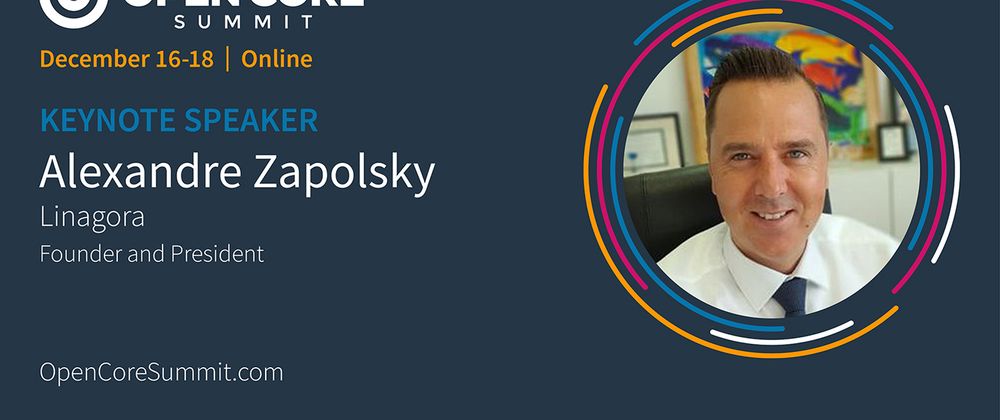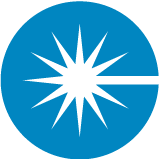Alexandre Zapolsky founded LINAGORA in 2000, which is now considered as one of the European champions in Open Source Software. Citizen entrepreneur and visionary, Alexandre Zapolsky defends an ethical "Third Digital Way", respectful of user rights, inclusive and sustainable, able to provide an alternative to the tech giants. He is passionate about the issues of personal data protection, cybersecurity, e-government, smart-city, and co-development with emerging countries, particularly in Africa. He has also founded, with more than 15 African professional federations, the Alliance for Digital Development, with the aim of organizing and developing digital in Africa for and by african players. In France, Alexandre Zapolsky is one of the representatives of the French digital industry in different bodies, like the French Digital Council since May 2018.
Relevant Links
LinkedIn - Twitter
Alex Zapolsky, founder and CEO of LINAGORA, explores the importance of "Good Tech For Good" and how FOSS is critical to end user empowerment.
What motivated you to start and found LINAGORA? What does open source mean to you?- 00:45
Alex explains interests in entrepreneurship since childhood, familiarity with Linux and open source led to realization that open source would be the future, led to creation of LINAGORA in 1999.
“At that time, I was already convinced that open source would eat software. … And now I think that open source is going to eat the rest of the economy.”
“On the other end, open source was also a wonderful opportunity about freedom and to change rules. For me, creation and development is like art. Developers, coders, hackers, are like artists. The best way for them to express themselves is to use open source.”
“For me, it was both the economic model, the market, and the possibilities for anyone to create freely.”
How has LINAGORA experienced 2020? What have your personal experiences been this year? — 4:00
Alex details struggles with COVID and near-death experience, and how it led to a personal transformation and a wonderful opportunity. “I realized how life can be precious, how you can lose it so quickly, that time is also very precious.”
From this, Alex explains realization to change priorities personally and for the company, and some of the company’s big changes in 2020 (e.g. embracing GitLab model of remote work, compensating all of company's lifetime carbon emissions)
“All of our work-at-home offers have been leveraged like crazy, so it’s also a wonderful year for LINAGORA.”
Alex also speaks about the importance of data privacy and digital sovereignty to decisionmakers, and alignment with LINAGORA.
What is the company’s business model? How have you built the company? What does the company look like in terms of employees and customers? — 7:15
LINAGORA is a 200-person company, based in France, Russia, Vietnam, Canada, Tunisia, with plans to open in Germany in 2021.
Delivering SaaS to more than 25 companies including USA.
Fully remote company, with workers from all over the world, including India, Colombia, large international presence, and base company language is English.
“Our main offer today is based on this software called Twake. Twake means ‘teams in open source.” Alex details the development of Twake and scaling of the internal team working on the solution.
Alex elaborates on other products, including Open-PAAS, Linshare and its French market share, interest in building a main competitor to Zoom by 2025, and Linto voice AI.
“With Linto, one of my main goals is to vocalize the web. There is no reason that the web is only a writer of information. We should be able to interact with any website voice, and we should be able to listen to any website.” Alex speaks about the potential impact for people who can’t read and have accessibility issues, and how accessibility can make digital more inclusive.
It sounds like you’re building a platform for productivity tools, for human work, for collaboration, for communication. The magical thing is, all these products you’re building are fully open source, and what that means is consumers can trust them. … What you’re building is really for humanity. — 14:12
Alex speaks about LINAGORA’s mission, to develop and invent free and open source software, and have the maximum positive impact for people, for society, and for the planet.
Alex describes transformation from before his COVID experience and his learnings, and elaborates on the importance of doing “good tech for good.”
“If we can make the world better, we have to do it.”
“One of the things I like about what you’re doing Joseph, is you don’t create an opposition models. You respect both COSS and FOSS. It’s not a question about competition between models. Every player needs to choose what is best for their business model. … And we need to all work in the same direction to try make the world better.”
What have been the biggest observations for you, in terms of business looking at open source? How has that evolved over the last 20 years? — 19:45
Alex highlights two major trends.
(1) What the giants have been able to achieve using open source. “All their success is based on open source technologies, and they have brought an amazing amount of credibility to our ecosystem”
(2) What RedHat, and now RedHat with IBM, have brought to the market. Alex speaks about RedHat bringing the credibility of open source to CIOs and CEOs, and elaborates on the importance of RedHat merger with IBM. Alex explains how IBM merger will increase business awareness of open source.
“I think now, we’re still at the beginning, but the market is going to be huge in front of us. Open source has proven that it’s so much stronger than the classical software model. The classical players are still strong … but it’s become harder and harder for them to keep their market share.”
Alex speaks about the development of Microsoft’s open source strategy.
Very soon, you’re launching a new initiative to support open-source creators. Can you tell us about the domain of possibilities and what you’re working on there? — 24:24
“I strongly believe that code is art, and coders are artists. So I thought about this initiative made by the French government … they finance French artists-in-residence, and their family, for a period of one year. They are paid just to create, and they are free to create what they want. So with this model, I decided with the domain of possibilities, that I will invite with an upcoming foundation, 10 amazing developers who will be paid for one year to work on whatever they want. The only thing we’d ask is for projects to be related to ‘for-good’ purpose. And they’ll be totally free to create what they want.” Alex encourages those who are interested in this program to reach out to Joseph and Alex.
Alex details the specific details of the program, and the idea of scaling the domain of possibilities to other places.
Share your questions and comments below!



Top comments (0)